Imperialism

In The Killing Season: A History of the Indonesian Massacres, 1965–66, Geoffrey B. Robinson offers the most comprehensive history of Indonesia’s mass killings to date, arguing that the army, foreign governments, and monopoly capital must all be jettisoned from the country’s ruling coalition for meaningful justice to be achieved. | more…
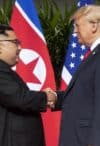
Kim Jong-un's Ongoing Peace Offensive
Ever since the United States divided the Korean peninsula in 1945, North Korea has had to cope with the existential challenge of U.S. hostility. Korea marks the western boundary of the empire, a border area where the sea power of the United States adjoins the land power of Russia and China. North Korea has been able to utilize this liminality to create a sovereign stateÑthe Democratic People’s Republic of KoreaÑwhose independence is not welcomed by either Moscow or Beijing but tolerated because the alternatives, a client of the other or absorption into the U.S. empire, are considered worse. Washington, as global hegemon, has been less willing to tolerate this independence but has faced constraints. The result has been a policy of hostility, of unrelenting diplomatic and economic war of varying intensity, stopping short of actual kinetic war, though never far from it. | more…

Monthly Review and Monthly Review Press author and celebrated world-systems theorist Immanuel Wallerstein died on August 31, 2019. In his memory, we republish an article that first appeared in Monthly Review 55, no. 3 (JulyÐAugust 2003). | more…

County Mayo, Ireland, is spectacularly beautiful. Dolphins, whales, and seals frolic in bays, rivers teem with salmon. Into this tranquil, unspoiled region, in early 2002, came Shell Oil, announcing plans to build a gas refinery. Shell promised wonderful things: new jobs, improved roads, money for schools. Church officials called this project a “godsend,” while honest, hard-working families, who had lived in Mayo for generations, certainly saw no harm in the project. But when the citizens of County Mayo realized what Shell actually intended to do, they rose up. Shamrocks & Oil Slicks tells the story of County Mayo—the fishermen, farmers, teachers, business people—who, motivated by love for their environment, their community, and their country, fought one of the planet’s most powerful destroyers to a standstill. | more…

Costas Lapavitsas’s The Left Case Against the EU (Polity, 2019) is recognized as the leading work advocating Lexit, the left-wing case for Brexit, and for nations leaving the European Union more generally. In light of current Conservative British Prime Minister Boris Johnson’s commitment to exit the European Union by October 31, even if it means a no-deal Brexit, the role of the left takes on growing importance. Moreover, this raises issues of the European Union generally, including the dominance of neoliberalism within it and the question of German hegemony. Here, Neil Davidson offers an assessment of Lapavitsas’s book. | more…

In this continuation of the exchange on the European Union, the United Kingdom, and the left, Andy Storey engages with Costas Lapavitsas’s arguments in The Left Case Against the EU. | more…

A Socialist Stance Toward the European Union
As part of the exchange on the European Union, the United Kingdom, and the left, Costas Lapavitsas provides an extensive response to Neil Davidson’s and Andy Storey’s contributions. | more…
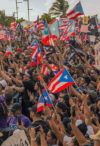
Naomi Klein’s The Battle for Paradise (Haymarket, 2018) describes a duel of dreams for post-Hurricane Mar’a Puerto Rico. On the one hand, networks of resistance and resilience sprang up around the island in the wake of the collapse of not just trees and houses, but infrastructure and government. On the other, a small group of super rich speculators and futurists were poised to cash in on what Puerto Rico’s then-Governor Ricardo Rossell—ó described as an opportunity to “sort of restart and upgrade” a nation he shamelessly called a “blank canvas.” Rossell—ó— was forced out of office on July 24, 2019, by mass protests, in large part thanks to the networks of resistance and resilience that came to life when the government essentially disappeared after the 2017 hurricanes. | more…
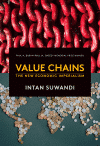
Winner of the 2018 Paul M. Sweezy – Paul A. Baran Memorial Award for original work regarding the political economy of imperialism, Intan Suwandi’s Value Chains examines the exploitation of labor in the Global South. Focusing on the issue of labor within global value chains—vast networks of people, tools, and activities needed to deliver goods and services to the market and controlled by multinationals—Suwandi offers a deft empirical analysis of unit labor costs that is closely related to Marx’s own theory of exploitation. | more…
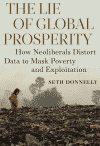
“We’re making headway on global poverty,” trills billionaire philanthropist Bill Gates. “Decline of Global Extreme Poverty Continues,” reports the World Bank. And “How did the global poverty rate halve in 20 years?” inquires The Economist magazine. Seth Donnelly answers: “It didn’t!” In fact, according to Donnelly’s The Lie of Global Prosperity, virtually nothing about these glad tidings proclaiming plummeting global poverty rates is true. | more…
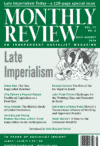
This special issue of Monthly Review is meant both to celebrate the fiftieth anniversary of Harry Magdoff’s The Age of Imperialism: The Economics of U.S. Foreign Policy, which was devoted to the analysis of imperialism at the height of U.S. hegemony, and to carry this analysis forward to address the present era of late imperialism in the twenty-first century. In bringing together work on the political economy of imperialism in the current era of globalized production, we seek to transcend the now fashionable view within the Western academic left that the concept of imperialism is obsolete. The imperialist world system stands not only for capitalism at its most concrete historical level, but also for the entire dynamic structure of power constituting accumulation on a world scale, which can only be understood in terms of a developing global rift between center and periphery, global North and global South. Failure to attend to this fissure would be fatal for humanity. | more…

Fifty Years After Harry Magdoff's The Age of Imperialism
The globalization of production (and finance)—which emerged along with neoliberalism out of the economic stagnation of the mid–1970s and then accelerated with the demise of Soviet-type societies and China’s reintegration into the capitalist world system—has generated a more generalized monopoly capitalism, ushering in what can be called late imperialism. Late imperialism refers to the present period of monopoly-finance capital and stagnation, declining U.S. hegemony and rising world conflict, accompanied by growing threats to the ecological bases of civilization and life itself. It stands at its core for the extreme, hierarchical relations governing the capitalist world economy in the twenty-first century, which is increasingly dominated by mega-multinational corporations and a handful of states at the center of the world system. Just as it is now common to refer to late capitalism in recognition of the end times brought on by simultaneous economic and ecological dislocations, so it is necessary today to speak of late imperialism, reflecting the global dimensions and contradictions of that system, cutting across all other divisions, and posing a “global rift” in human historical development: an epochal crisis posing the question of “ruin or revolution.” | more…











